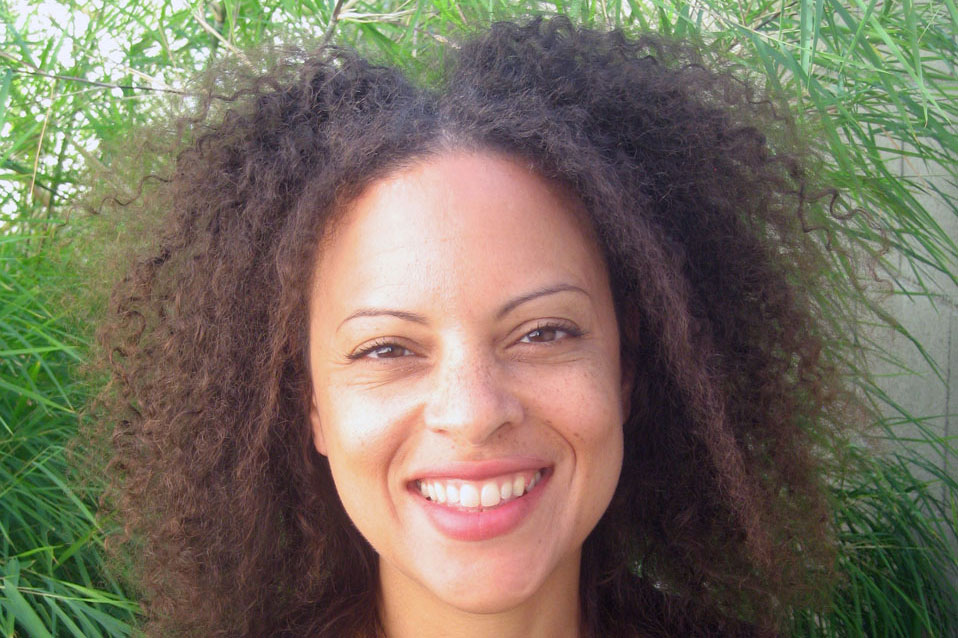Mindfulness Meditation in Mental Health Treatment: An Interview with Khana Lacewell

The practice of mindfulness meditation is all about compassion, awareness, and empowerment. While this practice is useful for everyone, Bridges to Recovery’s Meditation Facilitator Khana Lacewell believes meditation is of particular help to those suffering from mental health issues. In this interview, Lacewell describes the powerful ability of meditation to help those in pain regain peace in their lives.
Meditation is an ancient art form that has been practiced around the world for thousands of years. While its benefits have long been known to devout practitioners, it is only in the past several decades that Western medicine has begun to recognize meditation as a potential pathway toward emotional and behavioral health. Today, meditation is increasingly being integrated into modern medical practice and taking on an important role in psychiatric healing.
Khana Lacewell understands the potential of meditation in mental health treatment. As a meditation instructor at Bridges to Recovery, she sees meditation as an empowering method of self-care that offers clients opportunities for recovery beyond those available in talk therapy. In this interview, she shares her insights into what makes meditation so powerful—and why it’s often easier than people think.
Mindfulness Meditation
Meditation comes in many shapes and can be everything from a form of prayer to a safe method of treating insomnia to a way of increasing emotional intelligence. When we speak about meditation in mental health treatment, however, we are primarily talking about mindfulness meditation, a non-sectarian, empirically-supported practice emphasizing acceptance, compassion, and awareness. “The definition of mindfulness is paying attention—on purpose—to the present moment without trying to change it or force it to be different, and with non-judgment and compassion” Khana tells me.
Meditation is a practice of being able to observe our experience without reacting to it, and mindfulness is a very experiential way of learning meditation. As we meditate, we try to notice both positive and negative things; we work on paying attention to all of our experience, not just the negative. The mind is very drawn to the negative because ancient humans needed to pay attention to danger to survive, but modern humans don’t need the same vigilance even though our brains are still wired for it; now we need to increase awareness of our positive experiences in order to survive. The benefit of this neutral awareness is that I am able to just sit with my experience, whether it’s positive or negative, and just allow it and observe it without getting caught up in it.
While mindfulness meditation can have profound benefits for virtually everyone, those with mental health disorders often gain great benefit from the ability to self-regulate, and develop a healthier, more positive relationship with themselves even in the midst of psychological turmoil.
In order to teach clients how to practice this form of meditation, Khana leads a weekly meditation group at Bridges to Recovery through a mindfulness-based practice that combines meditation and reflection. “We usually meditate for about 30 minutes, because I find that an hour of meditation is more stressful than relaxing for most people. I like to ease people into it,” she says.
I typically guide people through a Mindfulness-Based Stress Reduction body scan, and then we process our experiences together. People imagine that meditation is just sitting cross-legged for an hour in silence, and that’s not really what we do. We talk about mindfulness, how it applies to our recovery, and how we can transfer it out into the real world.
Begin Your Recovery Journey.
877-727-4343Accessibility and Empowerment
When Khana talks about meditation, it sounds welcoming. Simple. Possible. But many people are intimidated by the practice, both due to their beliefs about meditation in general and because of their beliefs about themselves. “I think many people have the impression that meditation is this lofty and esoteric thing,” Khana explains. “I try to make it very practical and down-to-earth—because it is very practical and down-to-earth.”
It helps that I’m guiding people through the meditation. I don’t just tell people to sit down and focus on their breathing for 30 minutes. I do guided meditation, slowly and gently leading them through the body. I think that helps people develop an inner voice that helps them do their own meditation. I try to make it accessible and easy. People in recovery have a particularly hard time with the idea of sitting in silence. That often makes people really anxious. So I don’t just leave them in total silence: I guide them through it, and that eases people right away.
While the structure of the meditation practice itself is a vital piece to increasing comfort, Khana must also provide the emotional guidance to help clients be okay sitting with their thoughts and treating themselves with kindness. This can be particularly challenging for people suffering from mental health disorders, who may be more prone to rumination or obsession and whose thoughts are often intrusive, painful, or frightening.
I remind people that the brain is just another organ. The heart likes to pump blood and the lungs like to breathe and the brain likes to think. So let it think, don’t take it so seriously, and let’s just watch it for a little while. People are really calmed by that. We all have our themes and where our mind likes to go, and so rather than taking it so seriously and believing everything the mind spits out—because the mind likes to spit out a lot of garbage, and we like to believe all of it—we’re able to say, ‘Oh, that’s just what the mind likes to do.’ Even using a little humor to notice all the fascinating stuff the mind comes up with can be helpful.
Part of that process is learning to see your thoughts with what the Buddhists call friendly curiosity.
We want to have a little bit of friendly curiosity and compassion with our own experience, similar to how we would be with a friend—because we’re much harder on ourselves than we are on other people. I really try to teach people some self-compassion and self-acceptance during the meditation process, because that helps them take it out into the real world. This idea of having compassionate interest in our own experience-the whole mindfulness thing really-seems counter-intuitive at first. The idea of turning toward our pain, confusion, and anxiety with acceptance sounds scary. But if it really worked to run away and shame ourselves none of us would have any problems! Of course we must learn coping skills, but mindful self-compassion is just as important in learning resilience, emotional regulation, and having healthy relationships.
For many, the idea of treating oneself with the kindness you treat someone else is transformative in itself and drastically restructures people’s relationships with themselves. Instead of fear and judgment, you learn how to validate and normalize your own experiences without the input of other people.
While Khana has observed countless clients move from a place of fear to one of acceptance, one particular client sticks out in her mind. She was an older woman who came into the meditation group terrified of the process and convinced she would fail.
She walked into the room saying, ‘I absolutely cannot do this, I don’t want to do this.’ For the first two groups she would say, ‘I was so anxious, I couldn’t do it, I wasn’t doing it,’ after every meditation. She was very frustrated with herself and so anxious. But by the end of her time at Bridges, she would not let me leave the class because she would have so many questions and could not believe how much she had changed. She was so calmed and relaxed. There have been a number of people like that who came in having a really difficult time with not just the idea of meditation, but the act of meditation. But by the end of their time here they feel so calmed and empowered that they find themselves meditating regularly.
Opening Pathways
‘Empowered’ is a word Khana uses a lot. It makes sense—mindful meditation is ultimately about giving yourself the tools to exercise power over your own life and develop the skills you need to find self-acceptance and self-regulation. And that empowerment isn’t just anecdotal—it is backed up by solid scientific evidence. “Research has shown that even just the simple act of being able to name and note our experiences actually reduces our stress,” she explains. “Simply naming and noting our experience puts our brains on another pathway, so we’ve already changed our experience a little bit.”
But your experience isn’t the only thing you’re changing; studies demonstrate that meditation actually changes your brain chemistry and retrains your nervous system.
Meditation is a kind of pruning. We weren’t born with all of these thoughts that we have, we weren’t born with all of these behavioral patterns that we have. They are the result of very reactive and entrenched neural pathways. So if I am meditating and observing my experience and learning to do so while calm, my brain is actually using different neural pathways, and that’s where it becomes this pruning of old patterns and creating new regulated ones.
By taking advantage of the remarkably plastic nature of the brain, you are able to transform it and encourage the development of healthier, more balanced thoughts and behaviors.
“It takes a little bit of effort in the beginning,” Khana reassures. “I think it’s analogous to exercise; if you worked out once a year you’re not going to see results. But if you work out three, four times a week, your muscles are going to change. And it’s the same with the brain.” By continuing to regularly work on new behavioral patterns, the brain begins to adapt and forge new neural pathways to replace those created by dysfunction. “The good thing about that is that once we’ve worked our brains out a little bit, we can then relax and settle into a new routine. We don’t have to work as hard as we did in the beginning, it’s not as painful, it doesn’t hurt as much. Just like repeated physical exercise, it becomes easier and rejuvenating even. And we should all take our mental and emotional health as seriously as our physical health anyway!”
Call for a Free Confidential Assessment.
877-727-4343Flexibility and Possibility
While the purpose of all forms of mental health treatment is to help you develop the insight and skills to live a richer, more fulfilling life, meditation is unique in its broad applicability and flexible nature; it is not a singular act but infinitely malleable and accessible. As Khana says, “There’s not a right way to meditate.” This openness means that meditation can easily be practiced both during and after treatment, in whatever way works best for you.
I tell people to find their own practice. You don’t have to do this exactly how I’m teaching you, or how you think it’s supposed to be done; I try to give people a variety of mindfulness and meditation tools and tell them to find what works for them. Everybody is different and I want people to be empowered by that so they can create their own mindfulness practice. So many people tell me by the end of their time that they have their own practice that they’re going to go home with. That’s what really makes me happy.
By using meditation as an ongoing part of self-care, Khana’s clients are able to achieve an inner tranquility that they may not have been able to realize through talk therapy alone. And that can be tremendously powerful; learning how to engage yourself in healing allows you to feel a sense of self-determination that bolsters your confidence and soothes the spirit.
That’s the thing that I really see transform in people. They say, ‘Wow, I can do this, I can meditate, I never thought I’d be able to do these things.’ People are really surprised by how accessible and practical meditation is. They always have it at their disposal; they can do it any time, any place—even just a few minutes of mindful meditation is better than none—and clients really feel how it helps.
Bridges to Recovery offers meditation as part of its comprehensive mental health treatment program. If you or a loved one are struggling with a mental health disorder, reach out to us today, to find out how our residential treatment program provides individualized care towards a life no longer controlled by a diagnosis.






